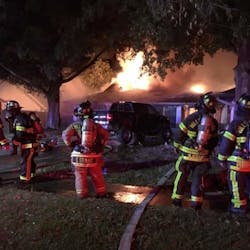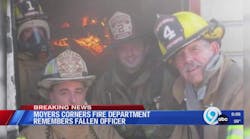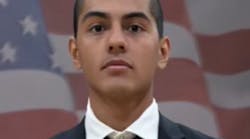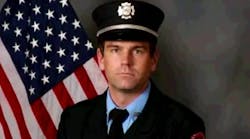TALLAHASSEE, FL—After four years in legislative purgatory, a bill that would grant firefighters cancer coverage — in a stunning reversal brought about by sustained public pressure and allegations of political vendettas — is being fast-tracked to clear the Legislature this year.
The bill cleared a key hurdle Thursday morning when the House State Affairs committee agreed unanimously to advance the proposal, after more than an hour of discussion marked by teary testimony and lawmakers’ vocal support.
The committee bill PCB SAC 19-04 would establish cancer as an occupational hazard tied to firefighting and require full health insurance coverage for cancer for firefighters, including disability and death benefits. It would require the firefighter to meet a certain set of requirements, like not smoking in the last five years. Instead of workers’ compensation, firefighters would also receive a one-time payment of $25,000 after being diagnosed with one of the 21 cancers specified in the bill.
Advocates have cited studies showing an increased risk of cancer among firefighters, and about 40 states have passed similar bills providing cancer-related benefits to firefighters.
The long-delayed hearing was filled with wrenching testimony from several firefighters and their loved ones, who nodded to studies showing an increased risk of cancer among firefighters and said their colleagues needed the protections.
Jazz Zombo, a Seminole County firefighter twice diagnosed with cancer during her 17-year career, wept as she recounted the two cardiac arrests she underwent during her first treatment and how nurses pushed her to wake up in the middle of the night and walk around because they so feared she might die in her hospital bed. She told lawmakers, hands shaking, how when she was re-diagnosed with cancer, her gynecologist wondered aloud at her lack of risk factors: “ ‘Where did this come from?’ ”
“When I went through fire school, I was not told I was going to die of cancer or get cancer,” she said. “No firefighter wants to use the benefits in this bill … If we are using it, we’re getting cancer.”
“When the public calls 9-1-1, it’s because they’re in trouble,” she added. “But who do we call when we’re in trouble? We call you guys.”
Jay Post, a former Brevard County firefighter, described how he had lost his voice and sense of smell to throat cancer. Using a buzzing electrolarynx to pick up the vibrations from his throat, he said the bill was needed not for him but for future affected firefighters and their families: “If they die, their families are left with virtually nothing … I’m glad that you guys have finally seen the light and are wiling to take care of us.”
Although the proposal had been brought before the Legislature every year for the last four years, local governments, which are often responsible for individual fire departments, had opposed the bill, citing the financial burden.
This year’s bill, according to a legislative staff analysis, could cost a little less than $5 million for the state and local governments.
This year the bill had drawn particularly broad bipartisan support among more than 80 members the Florida House and sailed through committee stops in the Florida Senate. But the House chamber — even with a majority of its own representatives signing on to the bill — had as in years past not scheduled a single hearing for the legislation.
House Speaker José Oliva, whose position affords him almost unfettered control over what bills are heard and die in his chamber, had said he felt the decision should be dealt with at the local level.
But firefighters began to whisper that Oliva’s reasoning might instead have been tied to political payback: Coral Gables firefighter David Perez, with the backing of a firefighters union in Miami-Dade, had challenged Oliva’s friend and former state representative, Manny Diaz Jr., for a state Senate seat last year.
Diaz won, but those allegations gained steam when Political Cortadito, a political blog run by former Miami Herald reporter Elaine De Valle, wrote that Frank Artiles, the disgraced former state senator and Oliva’s friend, had posted on Perez’s Facebook page and said he saw the cancer bill being held up as “a 4 stop bill in your near future.” (Artiles had resigned in 2017 after using racial slurs during the legislative session.)
Artiles also commented on De Valle’s post about the issue that “elections have consequences,” though he criticized the basis of her post.
Those allegations and the increasing public outcry among firefighters moved Oliva to abruptly change his stance Tuesday and say the bill would receive a hearing.
Oliva called the claims of political payback “false assertions” but acknowledged to reporters late Wednesday night that “in the great irony of life” they had contributed to his decision.
“Now naturally this process isn’t moved by things like that, but I think that the proliferation of it had an effect,” Oliva said. “What affected it further was that this wasn’t a bill that we were ideologically willing to die on a hill for.”
The Florida League of Cities, which represents local governments, had opposed the bill, and lobbyist Amber Hughes said Thursday their concerns were about how the bill would be enacted and to some remaining questions about how much the bill would truly cost: “It’s really hard for us to go and ask taxpayers to reach into their pockets without knowing what the cost is.”
Lawmakers questioned her from the dais, including Rep. Chuck Clemons: ”How will the city’s tax base be affected if all of a sudden there is a scarcity of firefighters?”
Hughes said during questions that she was obligated to raise the policy concerns on behalf of the group’s members.
In debate, lawmakers all acknowledged the popularity of the bill, stressing the need that it finally be passed. Rep. Nick DiCiglie, R-Indian Rocks Beach, acknowledged local governments would have to pay for coverage but said “you cannot take the emotion out of this when it comes to the cost.”
“Every once in a while, you just have to figure it out,” he said, describing his background as a small business owner. ”I have to take care of my employees. We have to take care of our first responders and our firefighters.”
After the bill passed unanimously, people in the audience and some on the committee stood and applauded as firefighters rose and hugged each other, many with tears in their eyes.
Omar Blanco, president of the International Association of Firefighters Local 1403 in Miami-Dade that had endorsed Perez, said he was grateful to sponsors and to House leadership for finally hearing the bill. He declined to comment again on the political allegations against Oliva involving his union.
After the bill passed, Oliva tweeted thanks to the bill’s sponsors and a promise: “After many many years, this is the year it gets done.”
———
©2019 the Tampa Bay Times (St. Petersburg, Fla.)
Visit the Tampa Bay Times (St. Petersburg, Fla.) at www.tampabay.com
Distributed by Tribune Content Agency, LLC.






